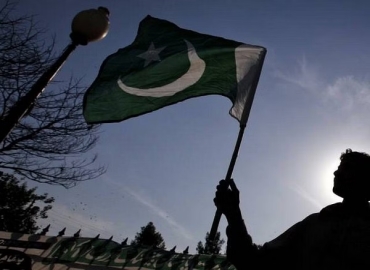Pakistan is facing political turmoil, with ousted prime minister and former cricketer Imran Khan at the center of a conflict with the current establishment. The conflict is aimed at disqualifying Khan from contesting the election. The country’s severe economic crisis is exacerbating the situation, with the Sharif government levying new taxes to comply with IMF bailout package conditionalities. The popular mood in the country is turning against the government, and instability has led to a dip in forex reserves and mounting balance of payments, resulting in a spike in fuel prices and the cost of essential commodities. The military’s influence remains a significant factor in Pakistani politics, with political parties often pointing their finger at it only when they are in opposition. Ultimately, it is the common Pakistani who bears the brunt of the instability, with the economy and daily life being affected. Despite political parties’ rhetoric, their power and influence remain beholden to the military’s influence.
Pakistan’s Political Turmoil Amidst Economic Crisis
Pakistan is currently facing political turmoil as the ousted prime minister and former cricketer Imran Khan engages in a conflict with the current establishment led by Shahbaz Sharif. The conflict seems to be centered around disqualifying Khan from contesting the upcoming election. With leading political families Nawaz Sharif and Zardari losing their credibility, Khan and his party Pakistan Tehrik e Insaf (PTI) remain the most potential contender for power in a nation grappling with a severe economic crisis.
The Punjab Police has been laying siege around Khan’s Lahore home for the last few days following several cases that appear to be pure witch hunts. While Khan has successfully evaded arrest, the police have arrested a few of his party activists. Since Khan’s ousting from his seat in April last year, the nation has faced unprecedented instability. The PTI lost the majority in the National Assembly due to engineered defections in the ruling party. Shahbaz Sharif, the new incumbent, has been in a state of decision paralysis amidst a climate crisis that has wrecked the nation’s agriculture-dependent economy.
The country’s economic woes are further exacerbated by the drastic dip in forex reserves and mounting balance of payments, leading to a spike in fuel prices and the cost of all essential commodities. The Sharif government has levied new taxes to mobilize Rs. 170 billion in order to comply with the conditionalities of the International Monetary Fund’s bailout package. Meanwhile, the Pakistani rupee has hit an all-time low, with a US dollar fetching Rs 282.
Khan has blamed the United States’ policy of regime change for pursuing an independent foreign policy and has alluded to the powerful military being responsible for his exit. While his adversaries had previously alleged that he was the military’s choice when he emerged as the frontrunner in the prime ministerial race with the help of minor political parties in 2018, it appears he has now fallen out of favor with the new military chief Gen. Syed Asim Munir. With his equation with the powerful military in tatters, Khan fears for his safety and the fairness of the upcoming polls.
In conclusion, Pakistan is currently in a state of political turmoil, with Imran Khan and the current establishment engaged in a conflict that could disqualify Khan from contesting the election. The country’s severe economic crisis further exacerbates the situation, with the Sharif government levying new taxes to comply with IMF bailout package conditionalities. The popular mood in the country is turning against the government, and the instability has led to a dip in forex reserves and mounting balance of payments, resulting in a spike in fuel prices and the cost of essential commodities.
Political Turmoil in Pakistan: Military’s Influence and Impact on Common Citizens
The military’s ‘hidden hand’ has been a significant influence on the political landscape in Pakistan, with political parties only pointing their finger at it when they are in opposition. As the turmoil escalates, the nation has become a political tinderbox, and it is the common Pakistani who ultimately bears the brunt of it all. With the uncertainty and instability affecting the economy and daily life, the military’s impact on politics has far-reaching consequences for citizens. Despite political parties’ rhetoric, the reality is that their power and influence remain beholden to the military’s influence.
Don’t miss interesting posts on Famousbio
